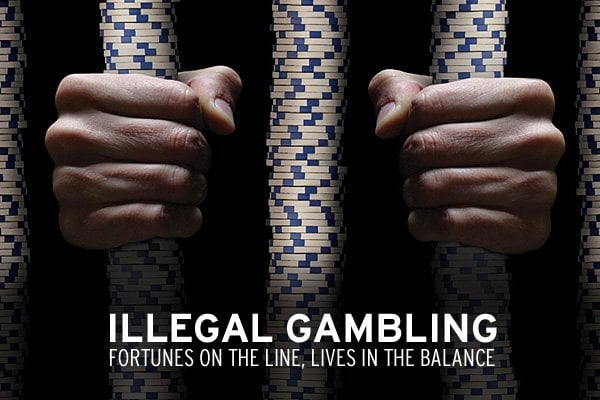Search the Community
Showing results for tags 'illegal'.
-
Malaysian authorities blocked approximately 12,000 phone lines and investigated more than 400 public complaints over gambling advertising during the first four months of 2016. Communications and Multimedia Minister Datuk Seri Dr Salleh Said Keruak said action was taken over concerns at the growth of marketing activities through SMS and social media platforms such as WhatsApp. Salleh said the Communications and Multimedia Commission (MCMC) would carry out a digital forensic investigation to monitor and identify websites and phone lines that offer gambling services. Last August, the MCMC claimed the rise of SMS gambling promotions was an indication of the success the government was having in stamping out illegal gambling websites, 2,200 of which were closed in 2015. "Since 2012 and April this year, MCMC had blocked access to 664 gambling websites following written request from the police," Salleh said. Last month, Malaysia’s deputy prime minister announced that the government would rewrite the nation's gambling laws to allow for harsher penalties for illegal gambling operators, with a particular eye toward online operators. The head of Malaysia’s anti-vice, gambling and secret society unit SAC Datuk Roslee Chik said in 2015 that his department was having talks with the Attorney General about toughening the Common Gaming House Act, Lottery and Pool Betting Act 1967 to give authorities “a fighting chance” against online gambling syndicates. “The Malaysian authorities are taking an increasingly tough line against illegal gambling operators, however the numbers suggest their clampdown is not proving an effective deterrent.”
-
- Malaysia
- blocks phone lines
-
(and 3 more)
Tagged with:
-
I gamble on line, "not with the wife" on occasion, and i also visit the local casinos with the wife. My problem is were always losing at the local casinos. I can't convince my wife that if you go with the right casino on line you shouldnt have a problem as far as getting your winnings and making sure your not dealing with a crooked casino. I have a way of depositing and not using my local bank, as gambling in the U.S. is ilegal. My wife is paranoid about gambling on line. I've been to a couple of sites on line that suppose be pretty good and I've had issues with them. I need some advise as to who or what casino would be the best fit for my situation? Thanking you in advance.
- 4 replies
-
- online gambling
- US
-
(and 1 more)
Tagged with:
-
Hello guys i would like to share this information to all of the people here at Askgamblers. Please, we all know that when it comes to Online gambling we receive lots of spam mails that was commonly promotions, invitations and others... Please be aware that some of the bad guys or hackers can bypass your main inbox and you will not know the difference. If you click it then you'll be redirected to unsafe web page then there's a chance that your email account will be hack. Then that is the starting of spam cycle check your mail if you find suspicious emails but don't click it just delete it or scan if it's available. I find these tips online and you can use it to prevent malwares. (It's better to feel safe than sorry.) Tips on handling spam email: · An up-to-date, comprehensive security solution for the computer with an integrated spam function will use a filter to protect the PC against such incoming email. · Email from unknown senders should be treated with particular caution. If an email looks very strange, here's what to do: ignore it, delete it, but under no circumstances open attachments or click on URLs. · Opening file attachments, especially from unknown senders, harbours risks. Attachments should first be scanned with an antivirus program and, if necessary, deleted without being opened. Links in emails should never be clicked on without thinking. Check the URL. Many email programs permit the actual target of the link to be seen by hovering the mouse over the visible link without actually clicking on it – the so-called mouse-over function. · If you find out that one of your contacts is sending unusual emails or instant messages, contact them – ideally using a different communication channel than the one via which the suspicious message came. · Spam email should never be responded to. All a response does is indicate to the fraudsters that the address they wrote to is actually valid. · Never disclose any personal information and/or bank data – either via email or on dubious websites. · Never transfer money to an unknown person. Never thoughtlessly publish your own primary email address online, e.g. in forums and guest books, as it can be accessed by fraudsters there. It is useful to enter a secondary address for these purposes. (source of tips) gdatasoftware




